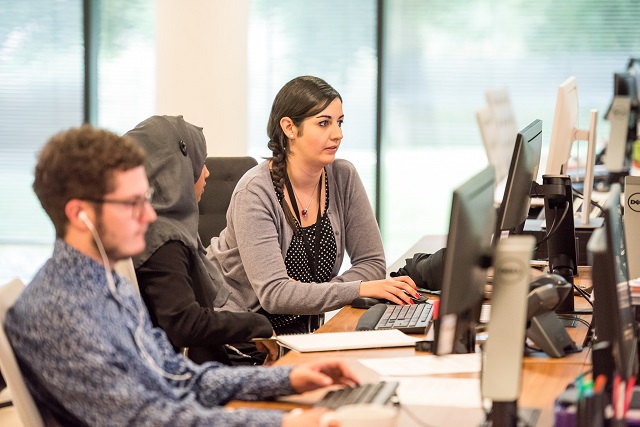Government hosting hui for feedback on Royal Commission of Inquiry into terrorist attack
Tue 02 Feb 2021
The Government is hosting hui around the country for Muslim communities and other faith and ethnic communities to give feedback on the final report from the Royal Commission of Inquiry into the terrorist attack on Christchurch masjidain.

The regional hui began on 31 January 2021 in Wellington and will continue through February. The hui are taking place in Auckland, Hamilton, Napier, Palmerston North, Nelson, Christchurch, Dunedin and Invercargill.
The purpose of the hui are to help understand key concerns and priorities, to answer questions about the report and its implementation, to inform about the government initiatives, and to outline how communities can contribute.
There are different hui being offered, including hui for all Muslim community, Muslim women, Muslim youth and Pan ethnic/Multi faith.
Andrew Little, Lead Coordination Minister for the Government’s Response, and Priyanca Radhakrishnan, Minister for Diversity, Inclusion and Ethnic Communities will attend the hui. Minister Radhakrishnan said:
“It’s really important to us that we consult widely, including with ethnic communities, so that everyone’s perspectives are heard and considered in the design of the Government’s response. I’m looking forward to hearing from a broad cross-section of New Zealanders because everyone has insights into how we can build a safe and inclusive country for all.”
The Department of the Prime Minister and Cabinet have produced brief information sheets to help people take part in discussions (scroll to the bottom of the page).
Feedback can also be submitted by completing an RCOI (Royal Commission of Inquiry) feedback form. The form can be submitted by email to rcoi@dpmc.govt.nz or by freepost to Hon Andrew Little, Freepost Parliament, Private Bag 18 888, Parliament, Wellington 6160.
For questions about the hui and community engagement email rcoi@dpmc.govt.nz.
Background information
The hui is part of the Royal Commission of Inquiry's work on community engagement.
The Royal Commission investigated the terrorist attack on two Christchurch mosques on 15 March 2019, including what relevant state sector agencies knew about the terrorist before the attack.
The final report from the Commission, Ko tō tātou kāinga tēnei: Royal Commission of Inquiry into the terrorist attack on Christchurch masjidain on 15 March 2019, was publicly released in December 2020. Related publications were also released including a summary of the report, hate speech and hate crime related legislation, a summary of the experiences of affected whānau, survivors and witnesses, and more.
The Government has accepted the findings of the report and agreed in principle to implement all 44 recommendations of the report.
The Government also announced a number of initiatives in response to the report. Several initiatives may be relevant to the family violence and sexual violence sectors, including:
- establishing a National Centre of Excellence to focus on diversity, social cohesion, and preventing and countering violent extremism
- trialling support for young children to improve their self-regulation, resilience, and social skills
- creating a Ministry for Ethnic Communities
- establishing the New Zealand Police programme Te Raranga, The Weave, to respond to hate crime and hate incidents
- strengthening the capacity of the Human Rights Commission
- implementing early intervention to prevent terrorism and violent extremism through the Multi-Agency Coordination and Intervention Programme
- making changes to the incitement provisions in the Human Rights Act, including amending protections against discrimination to explicitly protect trans, gender diverse and intersex people
- extending the Safer Communities Fund
- changing hate speech legislation
For more information see the full list of initiatives.
Commentary on the report including responses from community and advocacy groups are included in the media list below.
Update: In August 2024, the government announced the conclusion of the coordinated cross-government response to the Royal Commission’s Report into the Terrorist Attack on the Christchurch Mosques. Of the Royal Commission report recommendations, 36 have been implemented and 8 will not be progressing. Find information on the progress and decisions for all 44 recommendations in the Department of the Prime Minister and Cabinet | Te Tari o Te Pirimia Me Te Komiti Matua summary March 15 Royal Commission of Inquiry Recommendations Implementation Status.
Links between violent extremism and violence against women
Advocate Anjum Rahman has written:
"One of the initial things that stood out for me is the history of family violence in the life of the terrorist. He was abused by a partner of his mother, to the extent that an “apprehended violence order was taken out” to protect him. In so many cases of mass murder and terrorist attacks, we find family violence featuring in the history of the killer, who has also very often committed violent acts against intimate partners.
This is borne out by the research, as is the fact that misogyny is a feature of “lone actor” attacks. The question is, what are we going to do about this? Adequate resourcing to support children who have suffered violence is still not available. The institutions set up to protect these children have been found sadly wanting. Attempts to counter misogyny are often vigorously resisted.
Who will lead change in this area? The report suggests the Ministry of Social Development lead the work on social cohesion, with strong input by communities, civil society, local government and the private sector. A community empowerment approach is recommended, which means handing over decision-making power to communities."
The Women, Peace and Security: The Sexism and Violence Nexus (2020) research brief highlights the associations between sexist attitudes and violent attitudes and support for or participation in political violence. The authors state:
"The research presented in this brief shows that there is a need to focus our attention on sexist attitudes as well as on discriminatory gender norms. Attitudes matter when it comes to individual decisions to use or support violence. Individuals – both men and women – with hostile attitudes towards women, and towards gender equality in general, are not just more prone to violent extremist views and to intolerance towards other nationalities and religious groups; they are also more likely to actually support violent groups and to participate in political violence."
Researchers at Australia-based Monash University’s Gender, Peace and Security Centre have been examining gender-based approaches to preventing violent extremism and terrorism.
Promundo published Masculinities and Preventing Violent Extremism: Making the Connections (2020), which reviews the literature and research to explore the ways in which harmful masculinities, gender inequality, and violence-supportive attitudes and practices, as well as young men’s identity construction and trauma from their own experiences of violence, influence their engagement in violent extremism.
UN Women has published the guidance note Gender mainstreaming principles, dimensions and priorities for PVE [preventing violent extremism] (2019).
For more international research and resources on the links between violent extremism and violence against women see our previous story.
Related media
End to coordinated terror response ordered within weeks, Newsroom, 07.08.2024
Collins causes ‘shell-shock’ in small Christchurch hall, Newsroom, 03.08.2024
First national hui on counterterrorism to be held in Christchurch in June, Stuff, 13.05.2021
Counter-Terrorism Legislation Bill passes first reading, Beehive media release, 05.05.2021
Countering dominant narratives of NZ’s far right, Newsroom, 21.04.2021
Leading scientists call for public report of risks facing NZ, Stuff, 20.04.2021
New Zealand's terror list needs to be expanded - experts, RNZ, 22.03.2021
Spy agency releases full internal report into Christchurch terror attack, RNZ, 22.03.2021
Listen to those targeted by the hate groups, Stuff, 18.03.2021
Next steps in Government’s ongoing work with March 15 survivors, Beehive media release, 12.03.2021
Two years on, there are still pockets of hate. And there are beams of light, The Spinoff, 15.03.2021
Mosque attacks: Ardern highlights $1m community engagement fund, RNZ, 15.03.2021
Why aren’t police on the lookout for extremism?, Newsroom, 09.03.2021
'We need to see changes to institutions' - Islamic Women's Council, RNZ, 03.02.2021
Christchurch mosque shootings hui: interfaith advocate calls for apology, RNZ, 02.02.2021
Young Muslims want more than 'tick-box' exercise from govt, RNZ, 02.02.2021
Hui with government short notice but focused, Muslim leader says, RNZ, 30.01.2021
Series of hui on Christchurch mosque attack Royal Commission report to begin, RNZ, 29.01.2021
The terror attack was on all of us; the solutions must involve everyone, Newsroom, 21.01.2021
Online safety laws lagging by a decade, Newsroom, 19.01.2021
Podcast: Widows of Shuhada, RNZ, series of podcasts published in 2020
'Racism is well and alive' in New Zealand - Race Relations Commissioner, RNZ, 24.12.2020
A chance to make hate attacks criminal, not political, Newsroom, 14.12.2020
Policing hate: What are the proposed changes and will they make a difference?, Stuff, 12.12.2020
NZ embarks on quest for ‘social cohesion’, Newsroom, 11.12.2020
Royal Commission Report, Press Release: Islamic Women's Council of New Zealand, Scoop, 08.12.2020
Jacinda Ardern promises to close 'gaps in hate speech legislation', RNZ, 09.12.2020
Painful and painstaking: piecing together a terror attack, Newsroom, 30.11.2020
Christchurch terror attack report: 'People need to be accountable', RNZ, 29.11.2020
Ignored by the state - How Muslim women tried to warn of impending danger, RNZ, 08.03.2020
Image: Vlad Hilitanu on Unsplash




